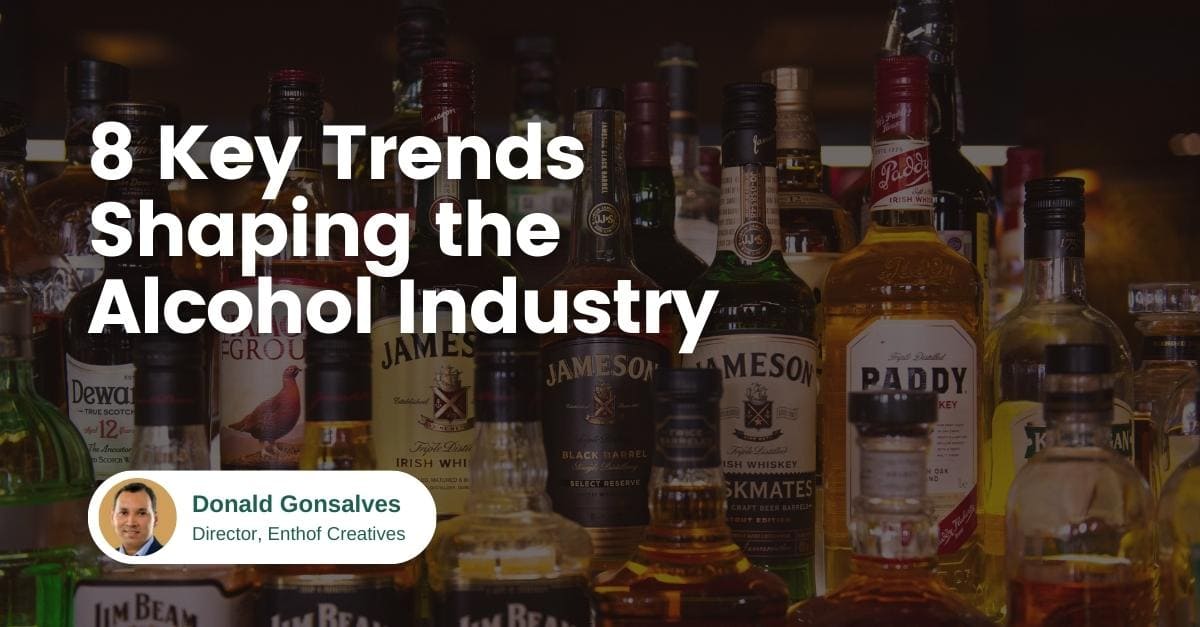The alcohol industry presents numerous challenges, as consumer demands, regulations, and trends continually evolve. As the industry adapts to shifting consumer behaviour and embraces new technologies, marketers must proactively anticipate and respond to these changes to maintain a competitive edge. In this article, we delve into current trends shaping alcoholic beverage marketing and examine their profound impact on the industry. By embracing and understanding these trends, businesses can position themselves as industry leaders, staying one step ahead of the competition.
1. Sustainability: A Game-Changer in the Liquor Industry
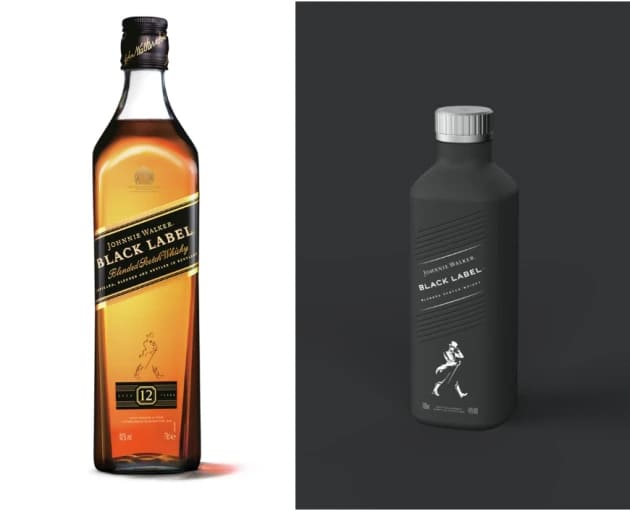
Johnnie Walker Black Label will be the first 100 per cent plastic free, paper-based spirits bottle.
Sustainability has emerged as a significant trend exerting influence on the alcohol industry. Increasingly, consumers seek products made with sustainable practices, prompting various companies to incorporate eco-friendly measures into their operations. From sourcing ingredients sustainably to reducing water usage and adopting eco-friendly packaging, businesses are actively responding to this trend. For instance, Diageo, the parent company of renowned brands like Smirnoff and Johnnie Walker, has committed to achieving 100% recyclable packaging by 2025 by reinventing packaging, while also investing in renewable energy sources to reduce its carbon footprint by 50% over the past decade.
2. Health and Wellness: Embracing the Shift in Consumer Preferences
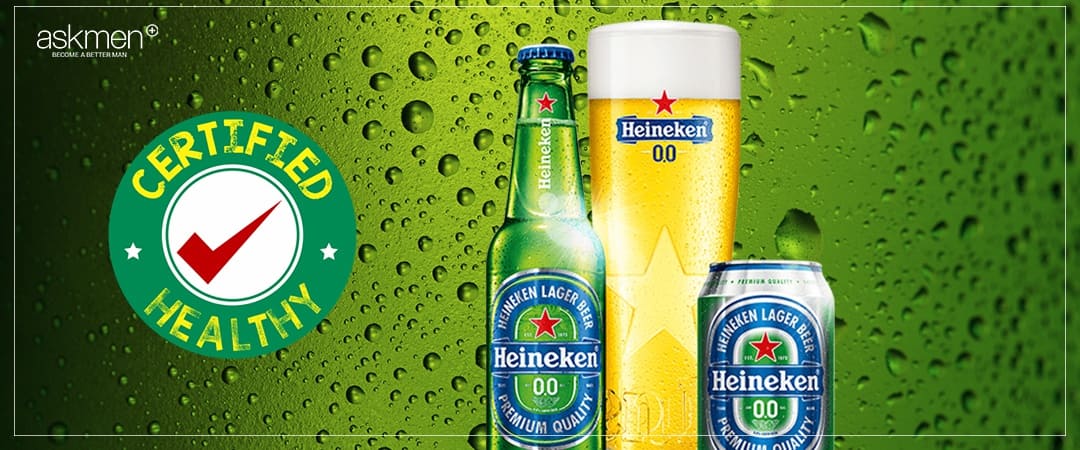
Heineken 0.0, a non-alcoholic beer marketed as a healthier alternative to traditional beer
The growing concern for health and wellness among consumers is a trend that has had a profound impact on the alcohol industry. Increasingly, individuals are seeking both non-alcoholic and alcoholic options that contain organic and natural ingredients. To cater to these preferences, companies are developing new products that align with health-conscious choices. For example, Heineken recently introduced Heineken 0.0, a non-alcoholic beer marketed as a healthier alternative to traditional beer. Similarly, Ketel One Botanical, a vodka-based drink, now features natural ingredients and boasts a lower alcohol content compared to traditional vodka offerings.
3. Local and Craft: Celebrating Artisanship and Community
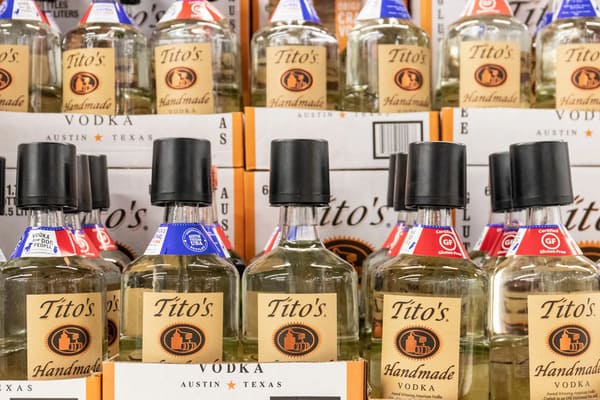
Craft distilleries have gained popularity among consumers.
The trend of supporting local and craft products has extended to the alcoholic beverage industry. Customers are showing a growing interest in products that emphasize artisanal qualities and local sourcing. Collaborations with local artists, highlighting unique flavours and characteristics, and using locally-sourced ingredients have become common practices. Tito’s Handmade Vodka, a locally-produced small-batch vodka from Texas, exemplifies this trend. Craft breweries and distilleries have also gained popularity among consumers seeking distinctive, small-scale productions.
4. Personalization: Tailoring Experiences to Individual Preferences
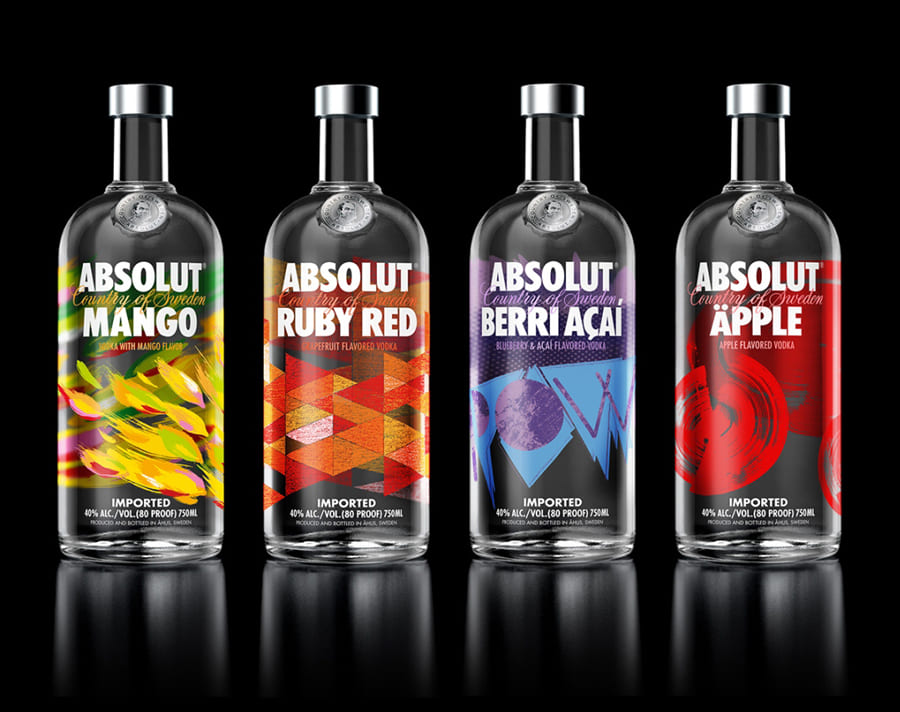
Absolute Vodka enables consumers to design their own vodka flavour
Consumers increasingly crave personalized experiences, and the liquor industry has responded accordingly. Offering customized cocktail recipes, personalized labels, and tailored recommendations based on consumer behaviour is becoming commonplace. Diageo’s “Cocktail Builder” tool allows users to select their preferred flavour profile, occasion, and spirit to generate a personalized recipe. Absolute Vodka offers a product called “Create Your Flavor,” enabling consumers to design their own vodka flavour, which is then delivered to their doorstep.
5. Social Media Influencers: Leveraging the Power of Digital Platforms
Social media influencers have become a pivotal trend in the alcohol industry’s marketing strategies. Many companies are collaborating with influencers to reach new audiences and promote their products. Partnerships include social media takeovers, sponsored posts, and product reviews. For example, Diageo partnered with bartender and influencer Jeff Bell, creating a series of unique cocktail recipes showcased on his Instagram account. Bacardi joined forces with renowned chef and Instagram influencer Danielle Bernstein, producing an innovative series of cocktail recipes featured on her social media accounts and blogs.
6. Diversity and Inclusivity: Embracing the Power of Representation
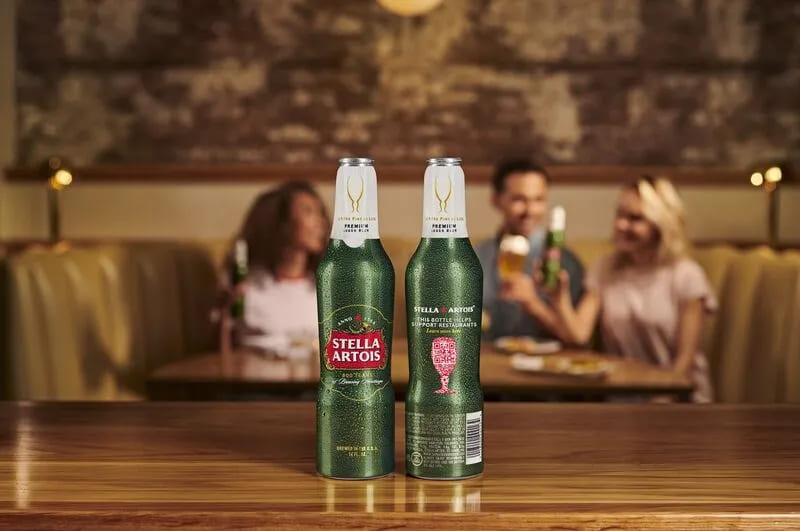
Stella Artois initiated the “Open For Good” campaign providing grants to businesses in the hospitality industry recovering from the pandemic’s effects
Diversity and inclusivity have gained prominence as a trend across various industries, including the alcohol industry. Consumers increasingly seek brands and products that embrace diversity and promote inclusivity. Companies now launch campaigns showcasing diverse spokespersons and supporting organizations focused on social justice. Stella Artois, in partnership with the James Beard Foundation, initiated the “Open For Good” campaign, providing grants to businesses in the hospitality industry recovering from the pandemic’s effects. Hennessy featured a well-known rapper in their campaign, aiming to connect with a young and diverse audience while advocating for social justice.
7. Virtual Events: Adapting to Changing Circumstances
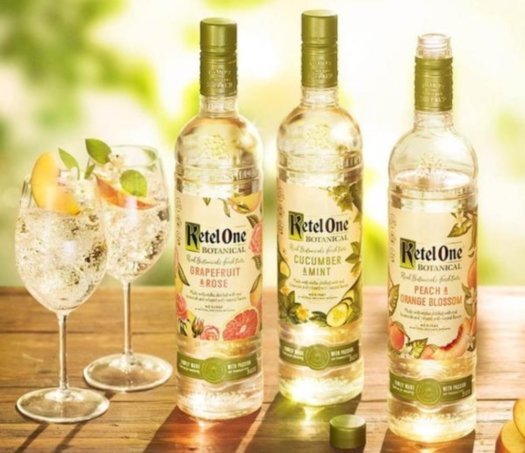
Ketel One Vodka organized a virtual event focused on creating cocktails using Ketel One Botanical
The trend of virtual events gained popularity during the COVID-19 pandemic, and the liquor industry was no exception. Many companies hosted virtual cocktail classes, tastings, and other engaging events, allowing consumers to enjoy their products from the comfort of their homes. Ketel One Vodka organized a virtual event focused on creating cocktails using Ketel One Botanical. Campari America arranged a virtual tasting event for their Skyy Vodka and Wild Turkey brands.
8. E-commerce: Embracing the Convenience of Online Platforms
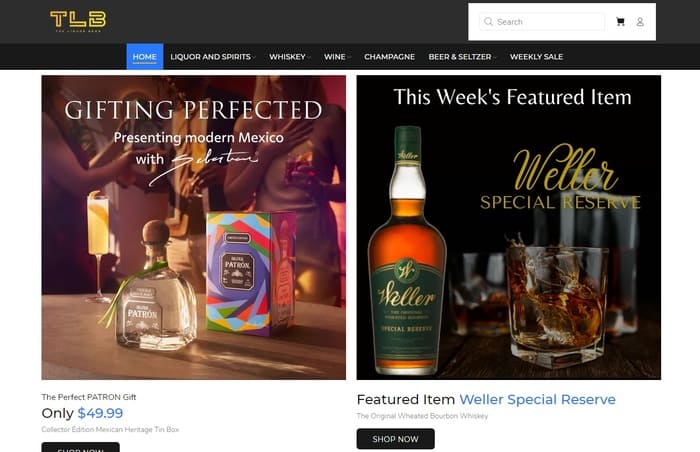
The Liquor Bros allows customers to order alcohol from local stores for convenient home delivery
E-commerce has become a vital channel for the food and beverage industry, including the alcohol or liquor industry. Many companies are investing in online platforms, such as home delivery applications, mobile apps, and online stores, to expand their customer base. Consumers can now order drinks with a few taps on their smartphones. The Liquor Bros is an exemplary online platform that allows customers to order alcohol from local stores for convenient home delivery.
In conclusion, the ever-evolving alcoholic beverage industry necessitates marketers to remain ahead of their competitors to lead the market. By understanding and incorporating trends such as sustainability, personalization, social media influencers, virtual events, local and craft, health and wellness, and leveraging e-commerce, companies can effectively connect with their target audience, fostering strong and enduring relationships.
